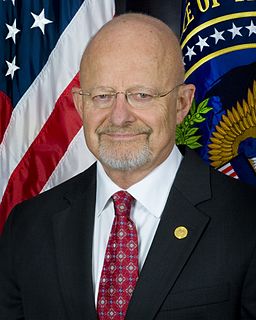A Quote by William Julius Wilson
Over the years, black leaders have been slow to recognize the need for a very, very progressive agenda. Anytime someone has talked about putting America back to work, blacks should have said yes, but they didn't. They were so preoccupied with affirmative action that they didn't provide the kind of leadership that would help some of the other progressive folks. Only now are black leaders beginning to realize the impact of economic issues.
Quote Topics
About
Action
Affirmative
Affirmative Action
Agenda
America
Anytime
Back
Back To Work
Been
Beginning
Black
Blacks
Economic
Economic Issues
Folks
Help
Impact
Issues
Kind
Leaders
Leadership
Need
Now
Only
Other
Over
Preoccupied
Progressive
Provide
Putting
Realize
Recognize
Said
Should
Should Have
Slow
Some
Someone
Talked
Very
Were
Work
Would
Years
Yes
Related Quotes
I think it's important for us to recognize that although historically black communities have been very progressive with respect to issues of race and with respect to struggles for racial equality, that does not necessarily translate into progressive positions on gender issues, progressive positions on issues of sexuality and in the latter 1990s we have to recognize the intersectionality, the interconnectedness of all of these institutions and attitudes.
Senator [Ben] Sanders and I share some very big progressive goals. I've been fighting for universal healthcare for many years, and we're now on the path to achieving it. I don't want us to start over again. I think that would be a great mistake, to once again plunge our country into a contentious debate about whether we should have and what kind of system we should have for healthcare.
The president sets the tone. He creates the atmosphere, and that can be enlightened, progressive, or it can be intimidating, depending on what the president's agenda is. I think the other dimension of this that I worry about is impacts overseas with friends and allies, many of whom are very, very concerned about America's position in the world and whether or not it's going to continue its leadership, which has been the prevalent condition since World War II.
If we could create the conditions that make racism difficult, or discourage it, then there would be less stress and less need for affirmative action programs. One of those conditions would be an economic policy that would create tight labor markets over long periods of time. Now does that mean that affirmative action is here only temporarily? I think the ultimate goal should be to remove it.
There's no reason why you can't say "August Wilson, playwright" even though all of my work, every single play, is about black Americans, about black American culture, about the black experience in America. I write about the black experience of men, or I write about black folks. That's who I am. In the same manner that Chekhov wrote about the Russians, I write about blacks. I couldn't do anything else. I wouldn't do anything else.
If the white man can come here uneducated and as an immigrant, and within 10 or 15 years set up an industry that provides job opportunities and educational opportunities for black people, then if the black man, the black leadership, who has access to all of this money and has all of these degrees today, can't use his talent and his know-how to set up business opportunities, job opportunities, housing opportunities for the black people the same as the white leaders have done for white people, then these black leaders need to get off the boat.
People don't realize it hurts my feelings when someone looks at my hair or my eyes, and says, 'But you're not actually black. You're black, but you're not black black, because your eyes are green.' I'm like, 'What? No, no, I'm definitely black.' Even some of my closest friends have said that. It's been a bit touchy for me.
I think that we need more economic-based solutions to the problems afflicting the Black community, and I think that that's a way to redefine affirmative action. I grew up with poor white people in West Virginia, and I know there's a culture of poverty. I know that I've seen white people perform exactly the same pathological forms of behavior as Black people do when they're systematically deprived, whether it's getting pregnant, doing drugs, dropping out of school, whatever we're talking about. I think that we should have affirmative action for poor white people too.
Politics is not about a person. We transform America not by electing some guy or woman to be president; we transform this country when millions of people stand up and fight back. That will result in good leadership on top. So the goal right now is not to worry about who's going to be running in 2020 or 2080. The goal now is to mobilize millions of people around a progressive agenda.
If we have learned anything in the past ten years, it is that these lovely things about America were never lovely. We have been expansionist and aggressive and mean to other people from the beginning. And we've been aggressive and mean to people in this country, and we've allocated the wealth of this country in a very unjust way. We've never had justice in our courts for the poor people, for black people, for radicals. Now how can we boast that America is a very special place? It's not that special. It really isn't.





































